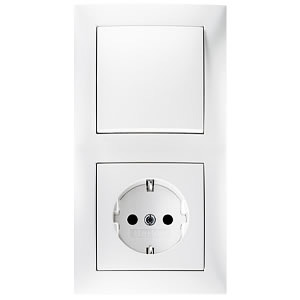Amibios8 Utilities Meaning

Number of employees 1000+ worldwide Website American Megatrends Incorporated ( AMI) is an American and company, specializing in hardware. The company was founded in 1985. Shankar was appointed chairman and president in 2011. It is headquartered in Building 200 at 5555 Oakbrook Parkway in,,, near the city of, and in the. The company started as a manufacturer of complete, positioning itself in the high-end segment. Its first customer was PCs Ltd, later known as Computers, making one of the first designs. As hardware activity moved progressively to -based, AMI continued to develop BIOS firmware for major motherboard manufacturers.
AMIBIOS8 ROM Utilities: User Guide. Limitations of Liability In no event shall American Megatrends be held liable for any loss, expenses, or damages of any kind whatsoever, whether direct, special, indirect, incidental, or consequential, arising from or arising out of the. AMIBIOS8 ROM Utilities: User Guide. Document Revision 1.29 – July 24, 2008. NDA REQUIRED.
The company produced BIOS software for motherboards (1986), server motherboards (1992), storage (1995) and remote-management cards (1998). In 1993 AMI produced MegaRAID, a storage which major (including HP and Dell) adopted. AMI sold its RAID-division assets to in 2001. As of 2011 AMI continued to focus on OEM business and technology. Voennaya forma novogo obrazca dlya fotoshopa. Its product line includes AMIBIOS (a ), Aptio (a successor to AMIBIOS8 based on the standard), diagnostic software, remote-access firmware, motherboards, backplane controllers, driver/firmware development, service processors, iNAS and SAN storage systems for, and 'solutions' for the operating system. Contents • • • • • • • • • • • • Products [ ] AMIBIOS [ ] Table of diagnostic beep codes compiled by AMI BIOS during Number of beeps Meaning 1 Power-on self test successful 2 Parity error in the first 64 of RAM 3 Memory failure in the first 64 KiB of RAM 4 Same as 3, but also including a non-functional timer 1 5 CPU error 6 Error in the on the 8042 keyboard controller chip 7 Generation of a CPU virtual mode exception signifying an error 8 Read/write error when accessing system 9 Mismatch between the calculated checksum of the ROM firmware and the expected value hardcoded into the firmware. 10 Read/write error for the CMOS NVRAM shutdown register 11 A fault in the AMIBIOS (also written as AMI BIOS) is the -compatible developed and sold by American Megatrends since 1986.
As of 1994, the company claimed that 75% of used the AMIBIOS. It is used on made by AMI and by other companies. A chip containing an old version AMIBIOS image, pulled from an ECS motherboard American Megatrends has a strict OEM business model for AMIBIOS: it sells source code to motherboard manufacturers or customizes AMIBIOS for each OEM individually, whichever business model they require. AMI does not sell to end users, and itself produces no end-user documentation or technical support for its BIOS firmware, leaving that to licensees.

However, the company published two books on its BIOS in 1993 and 1994, (listed in ), written by its engineers. During powerup, the BIOS firmware displays an ID string in the lower-left-hand corner of the screen. This ID string comprises various pieces of information about the firmware, including when it was compiled, what configuration options were selected, the OEM license code, and the targeted chipset and motherboard.
There are 3 ID string formats, the first for older AMIBIOS, and the second and third for the newer AMI Hi-Flex ('high flexibility') BIOS. These latter are displayed when the Insert key is pressed during power-on self-test. The original AMI BIOS did not encrypt the machine startup password, which it stored in non-volatile RAM. Therefore, any utility capable of reading a PC's NVRAM was able to read and to alter the password. The AMI WinBIOS encrypts the stored password, using a simple. By pressing the during power-on self-test when a prompt is displayed, the BIOS setup utility program is invoked.
Some earlier AMIBIOS versions also included a cut-down version of the AMIDIAG utility that AMI also sold separately, but most later AMI BIOSes do not include this program as the BIOS already incorporates detailed diagnostics. AMIBIOS is only sold through distributors, not directly to end users. Firmware upgrades and replacements are only available from AMI for its own motherboards.